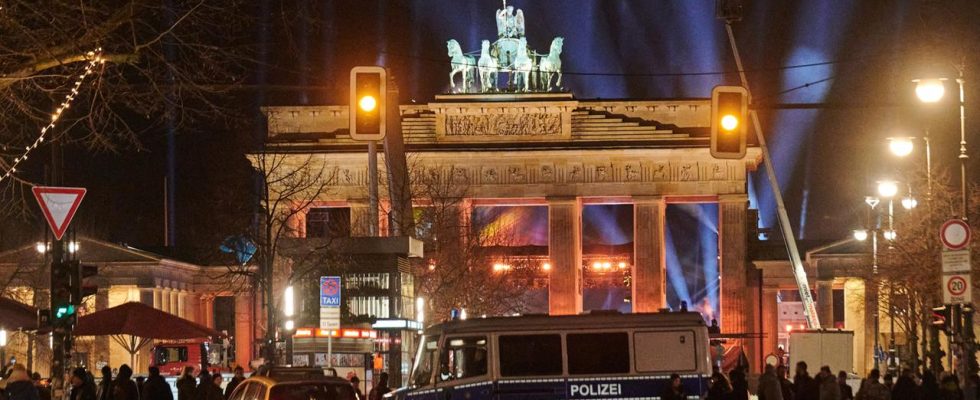Germany is awaiting the turn of the year – with mixed feelings in many places. Anyone who wants to go to the party at the Brandenburg Gate must expect strict controls. The police set up no-fire zones. In Cologne, too, the anticipation is not unclouded.
While the year 2024 has already begun in the South Seas and Australia, Germany is still waiting – this time with more uncomfortable weather than last time. The anticipation is not undimmed either. There are fears of riots in Berlin and other cities, and in Cologne people are on alert after indications of a possible planned Islamist terrorist attack on Cologne Cathedral. Three other men were taken into custody, police said in the afternoon. For many people in flood areas, the New Year’s Eve party on Sunday evening literally falls through.
Party at the Brandenburg Gate
Germany’s largest New Year’s Eve party is set to take place again in Berlin. Access to the party mile at the Brandenburg Gate has been open since late afternoon. So far, according to police, the influx at the entrance on Straße des 17. Juni is still manageable.
High security precautions apply, so visitors have to expect longer waiting times due to strict controls. There will be fireworks for the first time since the corona pandemic. Private fireworks are prohibited here. New this year is an entry fee of ten euros. According to the organizer, 65,000 people can come and online tickets were still available late on Sunday afternoon.
Prohibited zones for firecrackers
The Berlin police have now started to set up their announced ban zones for firecrackers and other fireworks. Barriers were set up on the sidewalks over a stretch of several hundred meters on Sonnenallee in Neukölln. Passers-by should show their bags because it is also forbidden to bring fireworks into the zones. The police were on site with numerous personnel carriers, and there were police officers on the street corners. A helicopter was circling over the area. The police had defined other hotspot areas: These include North Neukölln and Kreuzberg. There were further prohibited zones in Schöneberg and Alexanderplatz.
The first riots and attacks on firefighters and police officers had already taken place in the days before New Year’s Eve. In view of this, Federal Interior Minister Nancy Faeser pledged “extreme vigilance”. The SPD politician announced a “tough crackdown” on attacks against police officers. “Our emergency services have had to experience again and again that blind anger is carried out on their backs. The answer to this must be tough action by the police, but also by the judiciary.”
In Berlin alone, more than 4,000 police officers are said to be on duty on New Year’s Eve. According to Faeser, the country’s emergency services will be reinforced by around 300 federal police officers, as well as a further 500 forces to secure train stations.
On New Year’s Eve a year ago, emergency and rescue workers in Berlin and other cities were massively attacked. In some cases the police had to be deployed to protect firefighters from attacks while extinguishing fires.

